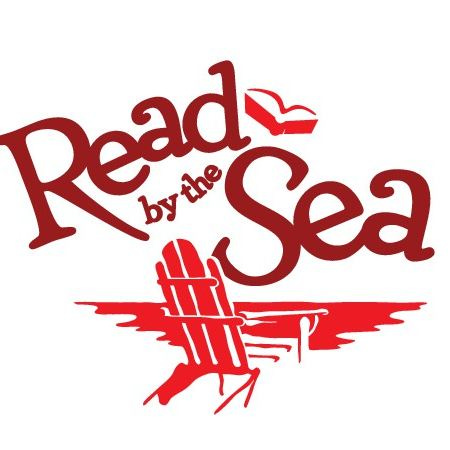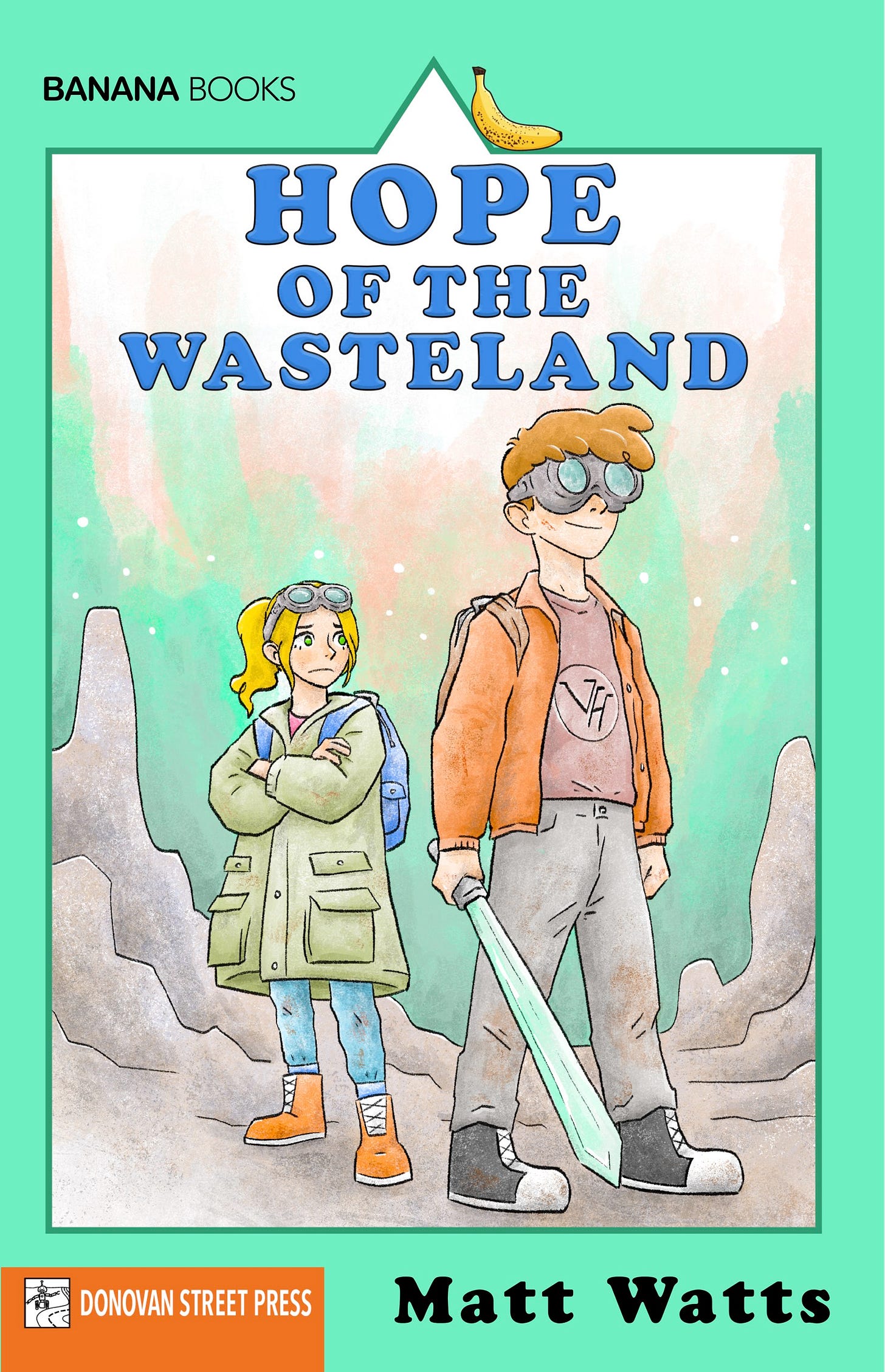Being the 61st edition of Assorted Nonsense, the official newsletter of Donovan Street Press Inc.
Pitch the Publisher
One of the dangers of including me in anything interesting is that one day, I will probably write about it.
Maybe even today.
Pitch the Publisher. Pithy. Alliterative. But what is it exactly? A publisher out there named Pitch? Meet Pitch! The Publisher. Or what authors might like to do to publishers after said publisher has rejected their manuscripts: Pitch that publisher right into the sea!
All of the above, maybe! But the “Pitch the Publisher” I’m writing about is prospective authors “pitching” to a panel of publishers in front of a live audience a manuscript or project they’d like to see published. Kind of like a Dragon’s Den scenario focussed on publishing. Representing Donovan Street Press, I have had the honour of participating in three such events over the past year.
As I’ve mentioned elsewhere in this newsletter, there are over fifty publishers in Atlantic Canada. At the three Pitch the Publisher events that I’ve attended so far I have sat with representatives from eight of those publishers. Partridge Island Press (who hosted the first one I attended, in Saint John, and organized the second, during WordSpring in Fredericton), CSG Publishing, OC Publishing, Merlin Star Press, Goose Lane Editions, Somewhat Grumpy Press, Swift Water Books (an imprint of Penguin Randon House Canada), and Purple Porcupine Publishing.
Donovan Street Press hasn’t always been the smallest or even newest publisher present at these events; we might be tied with Merlin Star Press on that score, but there’s no denying that we’re pretty new and pretty small, having incorporated in January 2023 with a current backlist of only seven books (the publication of Michael Antman’s Cherry Whip this coming September 15th will up that count to eight).
So it was with some trepidation that I attended my first pitching event as a publisher. I am very keen on not misrepresenting myself or my company so I was a bit leery about sitting in front of a bunch of prospective authors as though I was someone capable of propelling them to literary stardom. It put me in mind of the time I helped cast actors for a small part in a CBC radio play I’d written, a bit part that consisted of only a handful of lines. One of the actors the casting director and I auditioned was Ben Carlson, who dutifully read the paltry three or four lines several different ways according to our direction. He was terrific, and I was embarrassed that we’d tied up this talented actor’s entire morning auditioning for such a silly part. And in the end we didn’t even hire him; we hired Sergio Dizio instead (Sergio was also excellent).
About three years later I took my family to see a production of The Sound of Music at the Stratford Festival. Ben Carlson played Captain Von Trapp. My entire family agrees that it was the best production of any musical we’ve ever seen, and we’ve seen plenty. Carlson was outstanding. Watching his performance from excellent seats, about three rows from the front, I was appalled that I’d had the audacity to audition someone of his calibre for such a tiny part, and then not even hire him. If I ever see him again I will apologize.
Anyway, that’s kind of how I felt turning up for my first Pitch the Publisher event. Any of the writers pitching could have been a Ben Carlson, and Donovan Street Press isn’t exactly Penguin Random House. Worse, I felt a bit of an obligation to select someone to publish. And here’s the thing about that. First of all, DSP Inc. is mainly just me. Well, I have a Business Manager, Jenn DeLagran, who’s great, but although she writes she doesn’t do editorial. And I do have a friend, Ira Nayman, who’s helping me with editorial functions (currently editing a short story collection by David Gerrold for us), but it’s on a quid pro quo basis (he edits for me, I edit for him). I could hire freelance editors, but it’s still early days and we’re keeping costs down until we can properly afford them.
I currently have a few projects on my plate. So I felt I only had the capacity to take on one more project for now, without keeping the author waiting too long for their book to come out (standard wait time at other publishers is about two years from the date the contract is signed). I’m still figuring out what Donovan Street Press is, exactly, but for now I think of it as a traditional, boutique publisher, focussing on a very small number of projects for select authors who don’t want to go it alone, and who I feel I can help (at no cost to them, I always feel compelled to add).
And that’s not all. In James Michener’s book The Novel, a character working for a (fictional) publishing firm tells a slush pile editor that a “publisher finds one reasonably acceptable manuscript in nine hundred.” I can’t remember how many people pitched at that first pitching session in Saint John, but it sure wasn’t nine hundred. In all three pitching events I’ve attended I’d say we’ve heard less than twenty-five pitches. According to Michener, I’d really need to attend another one hundred and twenty-four pitch sessions to find a manuscript his fictional publisher would consider worth publishing.
At the CBC, I remember sifting through about four hundred submissions for a radio play series we were producing. It was my first experience with a slush pile. My overwhelming impression was one of mediocrity. Much of it wasn’t bad, exactly, but it wasn’t… great either. Most of it just didn’t stand out. I read submission after submission wondering how to evaluate them, how to tell if it was something worth pursuing. But then out of the blue something would pop out, would speak to you in some compelling way. Sometimes it was a unique voice, or an obviously gifted writer, or a gripping story; other times it was more practical factors such as a writer who had a track record, and was a known quantity.
As it turned out, I didn’t need nine hundred submissions at my first Pitch the Publisher session. There were several strong presentations. I was interested in two, but they both got snapped up by other publishers. I didn’t pursue anyone else because I wasn’t under any obligation to pick someone, and the fact is it has to be the right fit. Publishing a book does take a lot of time and money. It’s quite an obligation, really. So although I don’t require nine hundred submissions to choose from, I do need pretty much exactly the right work to cross my desk.
The next Pitch the Publisher event I attended was during WordSpring at the Crowne Plaza hotel in Fredericton. I had gotten mixed up and thought it was being held at the Crowne Plaza in Moncton, a ten minute drive from where I live in Riverview, cuz that’s where they’d held WordSpring the year before; I didn’t know the organizers switch cities each year, apparently always choosing hotels with the same name just to confuse simple people like me. Fortunately, I realized my mistake the night before, so I got up early and drove the two hours to Fredericton.
I enjoyed the drive up on the mostly deserted TransCanada (one of the selling features of the maritimes, the abundance of moose and deer on the roads notwithstanding), tunes jacked up loud in the car as always when I drive alone, but by the time I got to the Crowne Plaza my hands and fingers were all numb and tingly. I’d been experiencing this a lot lately and it was becoming a bit of a concern. I’m okay with conventional injuries that I know will heal in time, even really painful ones like broken ankles, and am inordinately proud of a nurse having flattered me once: “You appear to have a remarkably high pain threshold, Mr. Mahoney.” (Probably she tells all her patients that.) But weird symptoms tend to freak me out.
Now, as an aside, a part of me is reluctant to include any whiff of suffering in an otherwise fairly straightforward narrative about pitching to publishers, especially after fellow Substacker Tom Pendergast noted the absence of angst in a review he wrote about my memoir Adventures in the Radio Trade:
“Joe Mahoney is not all caught up in his feelings. He doesn’t write about his trauma or his anxiety or his depression, and not once did he talk about his journey to wellness. He is entirely without self-pity, and that is a joy to encounter.
I must confess to Tom that, aware of what I imagined might be considered a deficiency, I did make a couple of half-hearted attempts to add some suffering to the book early on, including a brief, unrequited crush and the occasional fleeting but run-of-the-mill anxiety, but neither attempt rang true or enhanced the narrative. And now I’m glad that I didn’t, and I’ve no wish to do so here, so let me assure you that the bit about the fingers does not presage a diagnosis of some degenerative neurological disease, and even if it did I am happy to report that I’m surrounded by people who consider anything short of death a mere booboo, so self-pity would not be an option.
And I do have a reason for bringing it up.
The morning in Fredericton began with a typically entertaining and informative presentation from author Mark Leslie Lefebvre. I’d really been looking forward to that after seeing him talk in Ottawa a few years ago, and having read some of his nonfiction, and Mark didn’t disappoint. Between Mark and the subsequent Pitch the Publisher event I soon forgot about the weird problem with my hands. Again, there were some excellent pitches, including at least one that piqued my interest, and seemed a potentially good fit for Donovan Street Press.
I kept hearing the line, “Without giving too much away…” referring to the stories being pitched. So let me just take a moment to reassure authors. Don’t worry about that! The fact is, when pitching stories, you have to give the plot away. Most writers are familiar with query letters, which are pitches to editors and publishers. In query letters, you don’t leave out critical elements of the plot, especially any twists. Yes, there are audiences present during Pitch the Publisher sessions, but I guarantee you that those audiences will not remember your pitch by the time your book is out. If the book in question is even chosen for publication, or, if it is, still resembles the book you pitched.
The more astute among you will have observed that a robot features prominently in the Donovan Street Press logo. Once I joked, “Are there any robots in the book?” when this was obviously not the case (the book being pitched was a literary thriller). This earned me a modest laugh, but I fear I may have inadvertently offended the Goose Lane Editions rep after she admitted that her publishing house wasn’t interested in acquiring any science fiction or fantasy, and I responded with a ham-fisted joke about Donovan Street Press not being snobbish in that regard, implying that I thought that publishing houses that didn’t publish SF&F were snobs. The joke fell flat because I’d delivered it poorly, it wasn’t very funny, and really it had been a poorly disguised (and unnecessary) defense of writing and publishing in a genre that has been looked down upon since its inception. Oh well! So much for ever getting published by Goose Lane Editions. Good thing I have my own publishing company.
Shortly after attending this event I told one of the authors who had pitched that I’m interested in his book, but that I can only take one, and I have to be fair to the authors at the next (and final) pitching event that I’d be attending at the Reads by the Sea Literary Festival in Pictou, Nova Scotia. Which took place this past Sunday.
On that day my wrists were acting up as well as my fingers, but by then I was a lot less concerned about it because I’d been diagnosed with a mild form of Carpel Tunnel Syndrome. A part of me even believed this diagnosis, and I hardly ever woke up in the middle of the night worring that it was actually something more serious such as, say, Impending Death Syndrome. Mostly I worried about the impact on my writing and incipient publishing career. Oh, and Karate (in which I’ve just received my blue belt! thank you very much), and where we perform about one thousand push-ups a class, and punch one another from time to time, which couldn’t possibly have anything to do with it, could it?
As I type this in my gazebo, at a stand-up desk, I am wearing a special wrist brace, while practising decent ergonomics for a change.
At the Read-by-the-Sea Pitch the Publisher, in a bit of a reversal, the publishers themselves sat on the stage in the deCoste Performing Arts Centre facing the glare of bright lights while those pitching did so looking up at us from just in front of the stage. I was pleased to see Amanda from Partridge Island Press there; always a welcoming face, Amanda, along with reps from Somewhat Grumpy Press (who didn’t seem all that grumpy), Purple Porcupine Publishing (who was neither purple nor prickly), and Swift Water Books, a Penguin Random House imprint, who in no way resembled a penguin, not even sporting a tuxedo, but who was certainly otherwise dashing.
Again, excellent pitches all.

Interestingly, this time around one of the publishing reps present often critiqued the authors’ pitches. This surprised me; in my view, my role was to find out as much about each book as possible while providing a bit of entertainment value for the audience. The authors could pitch their projects however they liked, as far as I was concerned. But this particular Pitch the Publisher had been billed as a bit of a Dragon’s Den, and the authors all seemed to take it in stride, so, to each their own.
I did take polite exception to one point, though. The rep in question, whose background is traditional publishing, was very keen on the authors’ social media presence, underscoring the importance of having some kind of platform. Publishers want to see that, the rep insisted. And I don’t disagree, per se.
But I’m a scrappy little indie publisher/author with a different perspective, and after one such comment I felt compelled to reassure the writers present: “We must acknowledge that maintaining such a social media presence can be an enormous time sink. It becomes a conundrum. As writers, how is our time best spent?”
I elaborated on this with one author after the event. “I do social media,” I told her. “I maintain a newsletter. I post on Bluesky, Mastodon, Facebook, Threads and Instagram. I don’t know that it sells books.” Or that it would in any way guarantee me a contract with one of the big five publishers, or secure me an agent, if I cared about that sort of thing.
I told her about Bookbub. That an email to 1.5 million subscribers may sell 1500 books, but only at a steep discount. That’s a sell through rate of .001%. You could spend years amassing followers on whatever platform and only sell to .001% if them. Is that a good use of your time? I used to post on Twitter. I had two thousand followers on Twitter. Posting daily on Twitter for years sold one book that I know of. And then Musk destroyed the platform, erasing all that effort.
It has taken me a day and a half to craft this post for Substack, for 123 subscribers, four of whom pay for the privilege. This post will probably not sell any books, or get me any more paid subscribers, or secure me an agent or a publisher. I probably would have been better off working on novel, or editing somebody else’s book. But I’ve enjoyed writing it.
“Do social media if you love it,” I told her. “Otherwise you’ll spend too much time at the keyboard and wind up with Carpal Tunnel Syndrome for no good reason.”
See, I told you I had a reason for bringing that up.
It is said that Clint Eastwood had to stop attending auditions for his movies because he remembered being an up-and-coming actor, and couldn’t stand not casting everyone who auditioned.
I wish I could publish everyone who pitched. I am having coffee with someone tomorrow. To everyone else: good luck. Never give up. And remember: do this because you love it. It’s the only good reason.
Hope of the Wasteland
by Matt Watts
“This absorbing and electrifying dystopian tale will appeal to all ages.” ~ Kirkus Review
What's scarier than a post-apocalyptic wasteland? 12-year-old Huey is about to find out.
It’s been two weeks and Huey’s father still hasn’t returned from a supply run to the Square.
His dad’s Number One Rule is posted on the wall of the bunker where they live: “HUEY DO NOT GO INTO THE WASTELAND ALONE” – and Huey has no desire to break the rules because that might set off his anxiety. But he’s running out of food... and what if his father is in trouble? It’s time for him to take action.
Huey sets out into the wasteland on a dangerous adventure where he'll face new challenges like mutants, giant scorpions, and most intimidating of all: a feisty, pre-teen girl named Hope.
Hope of the Wasteland is an engaging choice for readers who enjoy science fiction, humorous narratives, and stories set in the future. Ideal for kids ages nine and up, it appeals to both boys and girls, as well as adults who appreciate a well-crafted science fiction adventure. This book offers something for anyone seeking a compelling and imaginative read.
Thanks for reading!
Follow Joe Mahoney and Donovan Street Press Inc. on: Goodreads, Bluesky, Threads, Mastadon, Facebook, and Instagram
This has been the 61st edition of Assorted Nonsense, the official newsletter of Donovan Street Press Inc.










We're so glad you participated and do trust you'll enjoy your conversation and coffee tomorrow! See you in the pages!
RBTS 2025 Committee